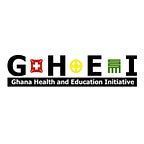COVID-19 in Ghana: Expectations and Reality
By Jovana Savic
According to Johns Hopkins University data on the 26th of March, the total confirmed corona virus cases on the African continent are 2,815. The highest number of infected people is in South Africa (709) and Egypt (456), which counts for overall 41% of total identified cases on the continent.[1] At the moment, on average, in the majority of West African countries, the number is just surpassing 100. In reality, although not as fast as the global social panic, the situation would be soon more challenging to control.
Ghana has been a good example of demonstrating a fast emergency response. Notwithstanding the national response, notably Ghana Health and Education Initiative (GHEI) has stepped up preparedness and prevention measures to prevent outbreak clusters and community transmission in rural communities. Working alongside local health officials, GHEI is ensuring that rural communities have the life-saving information they need to protect themselves and others from the virus.
According to Ghana Health Service[2], the first two cases were reported on the 12th of March. As a consequence of the number steadily increasing, after a week time, when 7th case has been identified, the country has introduced the travel ban, closed the Universities, High and Elementary Schools and suspended religious, sports events, conferences, and gatherings with over 25 people. At the moment, there are 132 cases confirmed in Ghana.
Despite the national and local efforts to slow down and control the spread of the virus and implementation of many radical measures, much faster than in Europe, seeing corona virus as an additional, potential burden to the health care system, which on day to day basis is already exceeding its capacity with malaria and community-acquired pneumonia cases (especially in rural areas of Ghana), will be a valid reality check challenge that Ghana might be facing soon.
There are three main reasons why controlling the corona virus could be a particular challenge.
The main climatic reason is the rainy season which has already started. As a consequence, the number of malaria cases will be increasing, and the rainfalls will reach its peak in June / July, which will gradually, certainly add a more of a burden to a very fragile health care system.
According to the WHO’s World Malaria Report 2019, annually, Ghana counts 6.3 million, or 3% (out of 213 million) of incidence rate in the whole Africa. Three leading causes in hospital admissions are: malaria 44.7% from which inpatients count for 19.5%, respiratory tract infections 6.8% from which 4.7% are hospitalised, and diarrhea 4.2% from which 2.9% are inpatients.[3] To put it into perspective, even on days without COVID-19, on a national level, Ghana is barely coping with covering the health care capacity with 3,365 doctors, 14,791 community health nurses and 13,231 registered general nurses, as data from 2016 indicates. [4]
Furthermore, the infrastructure constraints, such as living in close proximity, especially in rural areas, where a whole family lives in one room (not having a luxury to undertake isolation), using a public transport where people do not have the luxury of being able to keep physical distance (by sitting even up to seven hours to reach the capital in minivans, so-called tro-tros) and not having the infrastructure to facilitate frequent hand-washing (75% of people in Ghana do not have access to clean water) could add up to the burden to introducing the adequate measures to protect people against new COVID-19 infections.
Although current popular belief predicts that the warmer or hot weather will slow the spread of corona virus, this remains still just an assumption. So far, epidemiologists worldwide have based this assumption on viruses that have been around for a long time. Due to the humid climate in West Africa, where even during the dry season humidity reaches 80%, it is hard to predict how fast community spread could be, and therefore hard to predict to what extent this hypothesis is true.
The climatic, infrastructure constraints, socio-economic factors and the disease burdens have shaped the environment where the more drastic measures must be implemented in order to try to keep the spread of the virus in control. The only good thing is that we do not know the virus good enough yet and that the consequences might be mild. Indeed, although this assumption provides a glimpse of hope, it should not be an excuse not to act, get ready and put stricter measures in place.
If you are reading this article and wonder how you can contribute to the prevention of COVID-19 in rural areas of Ghana in the Western North Region, then this article had a concrete solution for you. Ghana Health and Education Initiative has already created COVID-19 Emergency Response Fund and it is already implementing preparedness and prevention measures to combat the virus and protect rural communities in Ghana. Please join in here and be part of navigating the crisis more effectively.
[1] https://coronavirus.jhu.edu/map.html
[2] https://ghanahealthservice.org/covid19/cancelled.php
[3] https://www.ghanahealthservice.org/downloads/Burden_of_diseases_Bulletin-3-B.pdf
[4] https://assets.publishing.service.gov.uk/government/uploads/system/uploads/attachment_data/file/812958/Ghana_-_Medical_and_Healthcare_-_CPIN_-_v1.0__GOV.UK_.pdf
The author is former Education Programs Manager at Ghana Health and Education Initiative
